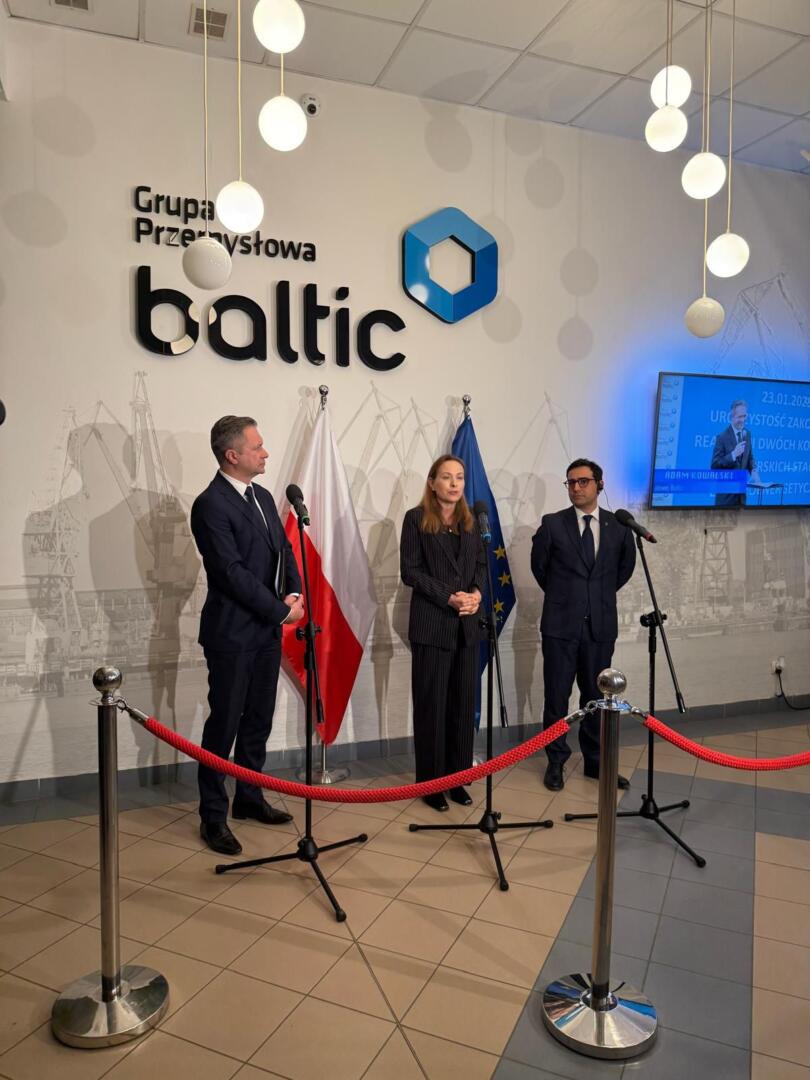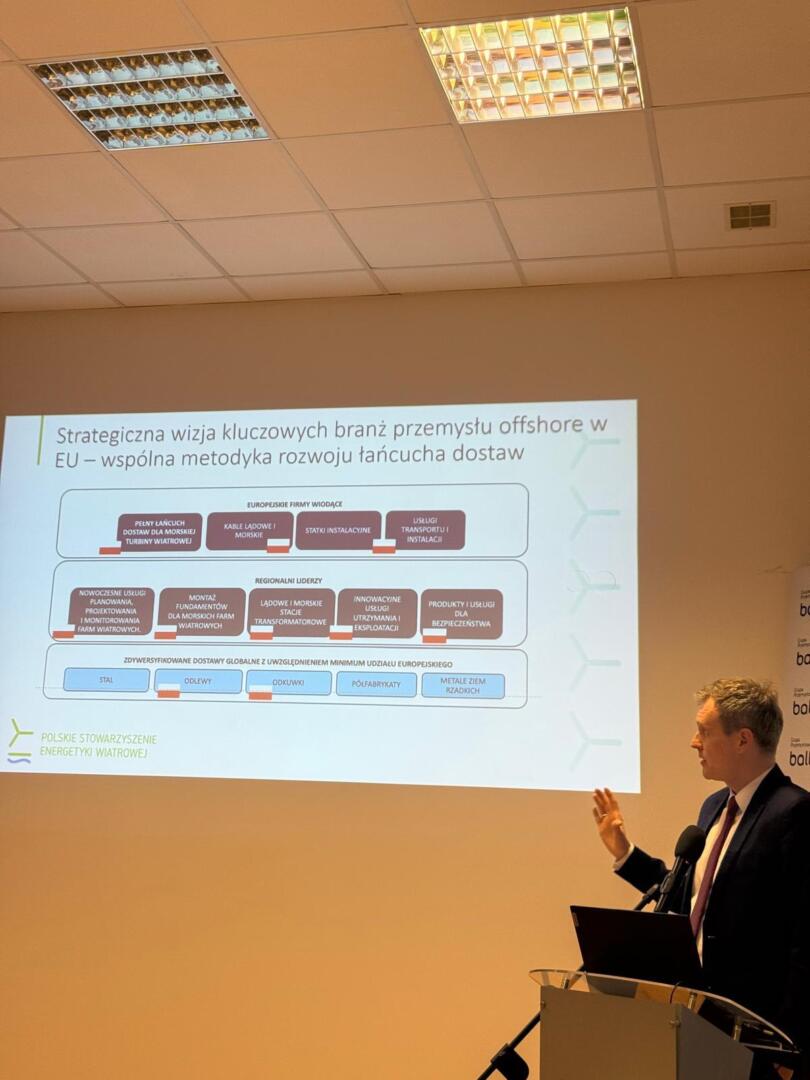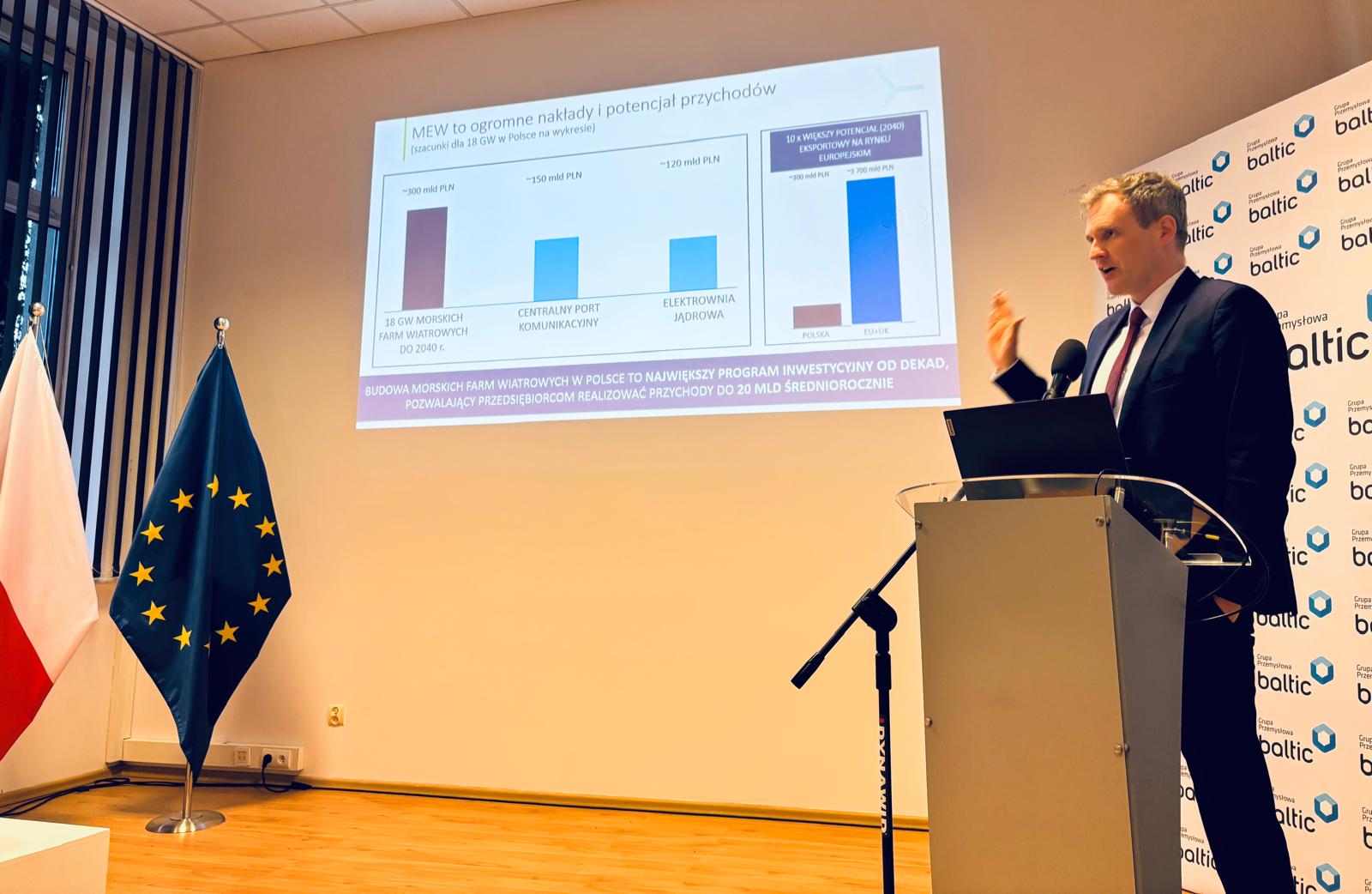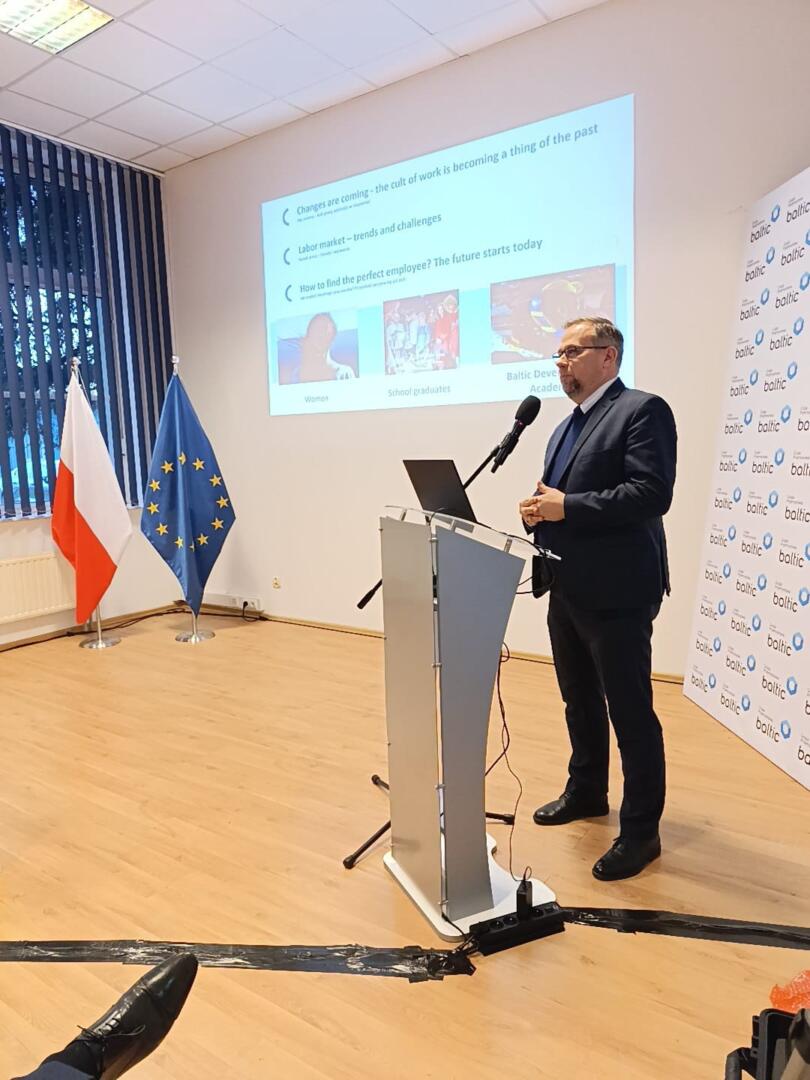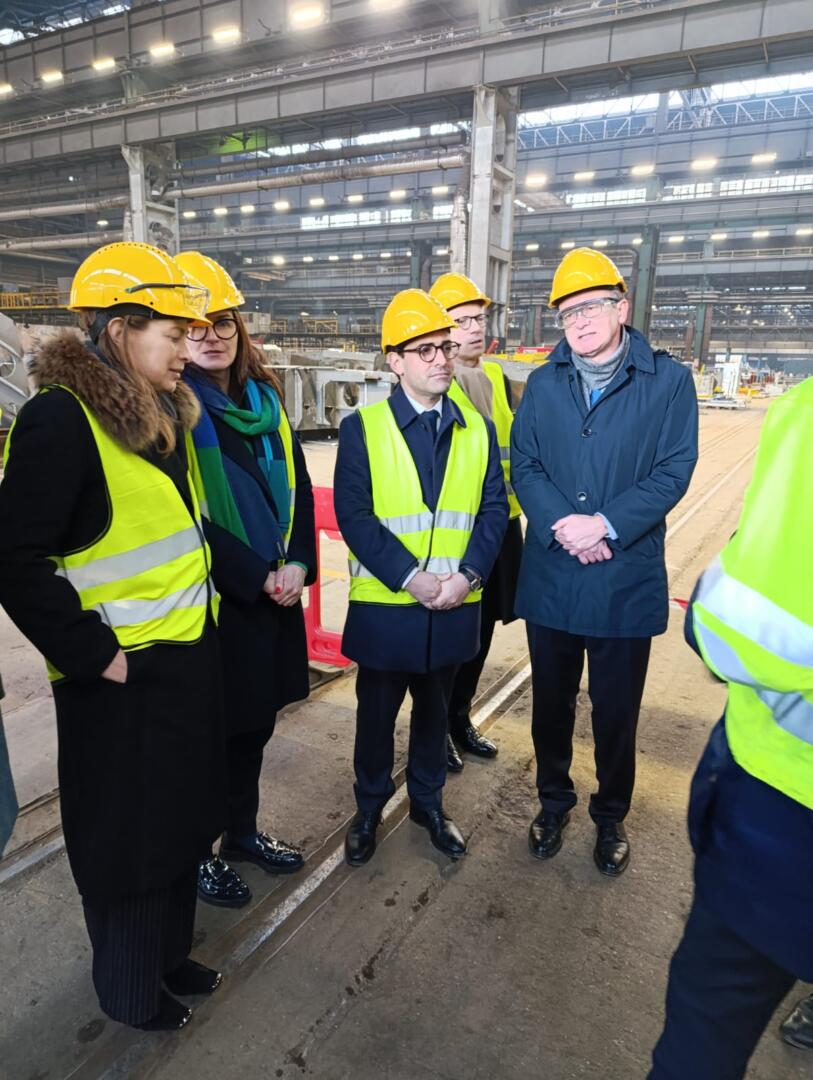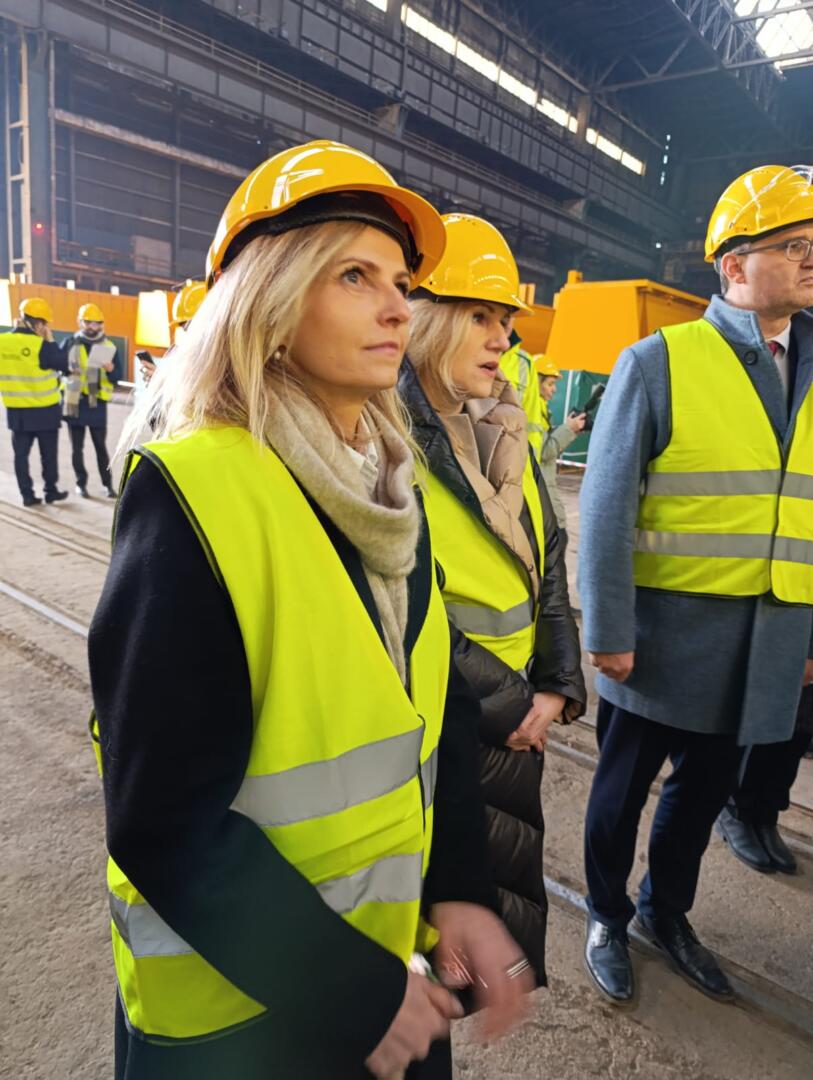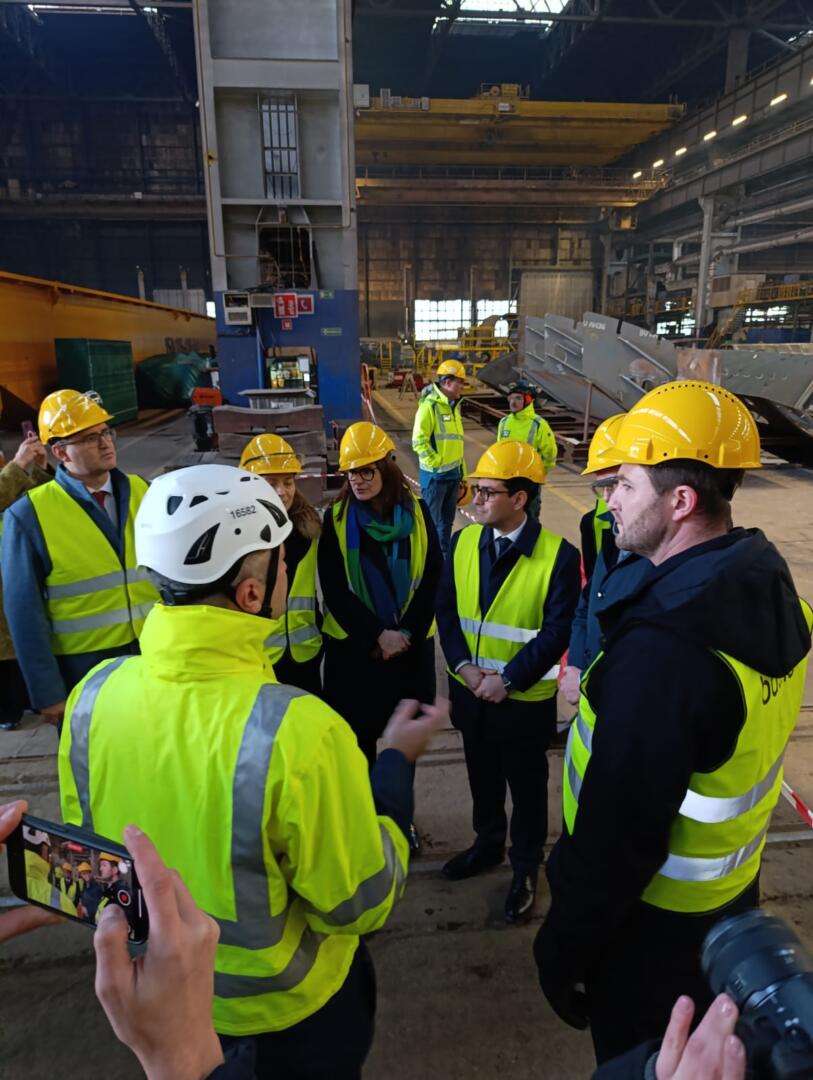On Thursday, February 6, the Baltic Industrial Group hosted a visit by EU and Polish leaders in the field of industry and wind energy. The meeting was attended by, among others, Stéphane Séjourné Vice President of the European Commission for Prosperity and Industrial Strategy, representatives of WindEurope – CEO Giles Dickson together with Deputy CEO Malgosia Bartosik, and Minister of Funds and Regional Policy, Katarzyna Pełczyńska-Nałęcz. The purpose of the meeting was to discuss the potential and further development of the offshore wind energy sector in Poland and the European Union with the involvement of Polish companies.
“Energy transformation and reindustrialization of Europe must go hand in hand. Investing in offshore wind energy is not only a matter of energy security, but also an opportunity to rebuild European industry and strengthen its global competitiveness. As the European Commission, we will support the efforts of member states and industry to create the conditions for greater integration of the European supply chain and maximize the participation of local companies in this strategic sector,” said Stéphane Séjourné, European Commission Vice President for Prosperity and Industrial Strategy.
The meeting took place at a key moment for European industry and energy policy. The European Commission has just unveiled the assumptions of the Competitiveness Compass – a general strategy for strengthening the competitiveness of the European economy for the next five-year term. It is a guiding document ahead of the planned publication on February 26 of a flagship and more detailed strategy to improve the competitiveness of European industry – the Clean Industrial Deal (hereafter: “CID”). Along with the CID, Brussels will unveil a series of accompanying documents next month, led by the Affordable Energy Action Plan.
The three main areas of action that the EC is focusing on in the Compass are innovation, decarbonization and security.
- Eliminating the innovation gap is to be ensured by a special EU strategy to support and develop start-up and scale-up companies.
- The Joint Action Plan for Decarbonization and Competitiveness is to include the Affordable Energy Roadmap and the Act on Accelerating Industrial Decarbonization.
- Reducing overdependence and enhancing EU security is to be supported by adequate diversification and strengthening of local supply chains. A review of public procurement regulations is to enable the introduction of European preference for public procurement in critical sectors and technologies.
The visiting delegation traveled to Ostrow Island, which has historical ties to the Gdansk Shipyard, to learn about the activities of the Baltic Industrial Group and its facilities. In addition, it also visited the construction of Baltic Towers, the largest wind tower factory in Europe.
During the visit, Baltic Industrial Group President Adam Kowalski presented the plant’s infrastructure and discussed its role in building the European offshore supply chain.
Piotr Czopek, Vice President of WIH and PWEA presented the assumptions of the Polish Offshore Wind Industry Development Strategy, with particular emphasis on the pan-European supply chain development methodology proposed in the document. The document by a team of experts from the Wind Industry Hub, PWEA and the CEE Energy Group proposes to unify the understanding of the challenges within the EU and support coordination of wind industry development, by applying a common approach to the concept of supply chain development for offshore wind energy.
ej.


